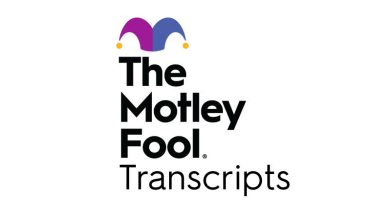Lost Your Job and Health Insurance? This Account Could Come to Your Rescue

[ad_1]
When you lose a job, your savings account has the potential to take a really big hit. You might need to raid your emergency fund to cover your expenses in the absence of getting a paycheck from work.
But losing a job could mean losing more than just your paycheck — it could also mean losing your health insurance, since it’s common for people to get their coverage through their jobs. If that’s the case, you may be ready to panic. But there’s a specific account that could come to your rescue.
You can tap your HSA
If you have funds in an HSA, you may be aware that you can take withdrawals from your account to cover qualified medical expenses at any time. And health insurance premiums when you’re unemployed count.
To be clear, you can’t take HSA withdrawals to cover health insurance premiums as a matter of course. Rather, you can only take withdrawals for that purpose at a time when you’re receiving unemployment benefits. But if that’s the boat you’re in, your HSA could help you put health coverage in place while you look for a new job that offers health insurance as a workplace benefit.
Meanwhile, if you lose your insurance in conjunction with losing your job, you may be able to stay on your workplace plan through COBRA. COBRA lets you continue your workplace health insurance coverage for 18 to 36 months, provided you’re willing to pay for the cost of your premiums in full.
COBRA can be prohibitively expensive, though, because you’re paying the unsubsidized rate for workplace health insurance, whereas when you had coverage while you were employed, your company probably picked up a good chunk of that tab. But you’re allowed to withdraw from an HSA to pay your COBRA expenses so you can retain your coverage while you look for work.
Featured offer: save money while you pay off debt with one of these top-rated balance transfer credit cards
Don’t be too quick to spend your HSA balance
You’re allowed to tap your HSA at any time to pay for qualified healthcare expenses. But one thing you may want to do is avoid taking withdrawals for smaller expenses you can afford to pay for out of pocket, like a $25 prescription here or a $40 copay there.
If you find yourself out of work and without insurance, you might really come to rely on your HSA balance to pay for health insurance premiums or COBRA. So the more money you can keep in your HSA, the more options you have in that scenario.
Of course, it’s also a good idea to make sure you have a solid emergency fund in the bank with enough money to cover at least three months of essential bills. And one thing you may want to do is research the cost of having to buy your own health coverage in your area and add that sum into your monthly bills in the context of your emergency fund calculation.
So let’s say right now your essential bills amount to $2,700 because your health insurance is subsidized. If having to pay for health insurance on your own will raise your monthly total to $3,000, use that as the basis for your emergency fund and multiply that $3,000 by three.
You unfortunately never know when your job might land on the chopping block. Having a way to pay for health insurance while you look for work could make an otherwise harrowing time a bit less stressful.
These savings accounts are FDIC insured and could earn you 11x your bank
Many people are missing out on guaranteed returns as their money languishes in a big bank savings account earning next to no interest. Our picks of the best online savings accounts can earn you 11x the national average savings account rate. Click here to uncover the best-in-class accounts that landed a spot on our short list of the best savings accounts for 2024.
[ad_2]




